Презентація на тему «Cultural Management Issues»
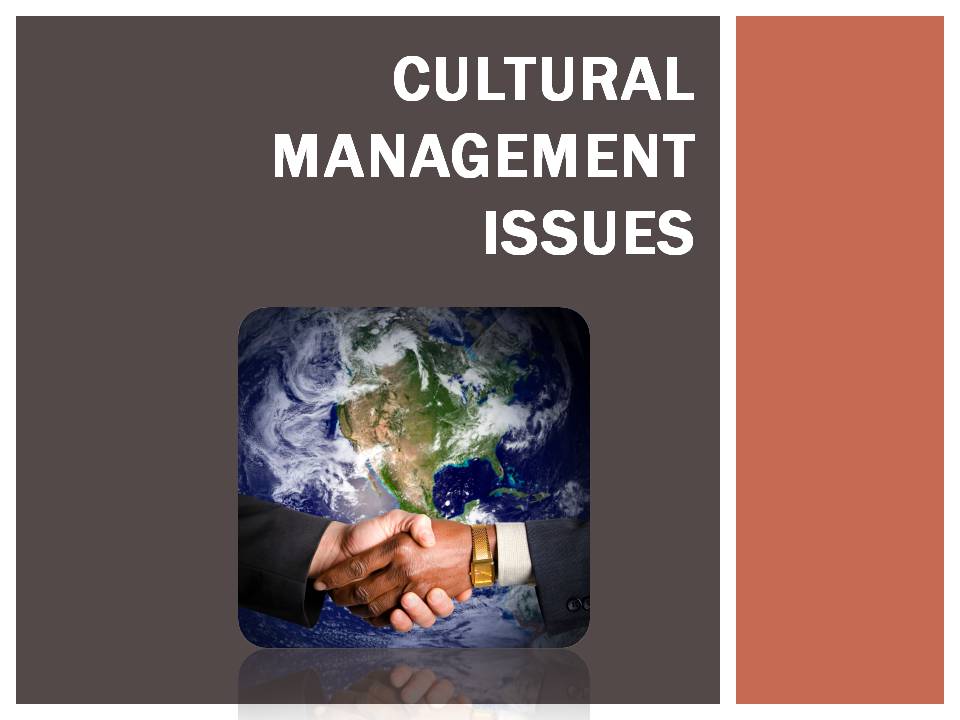
Cultural Management Issues
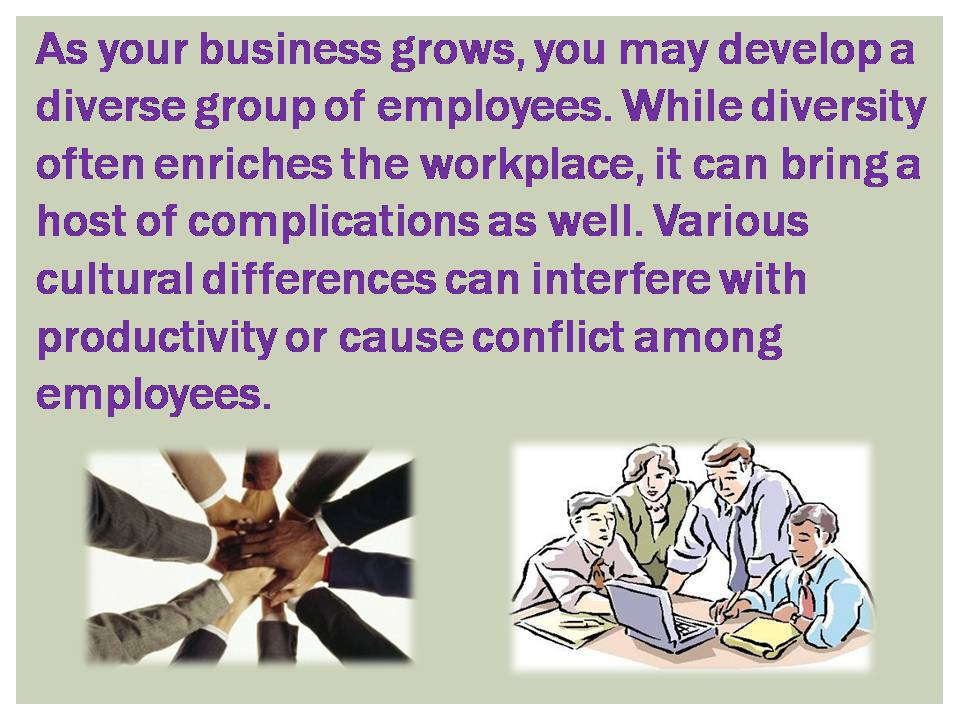
As your business grows, you may develop a diverse group of employees. While diversity often enriches the workplace, it can bring a host of complications as well. Various cultural differences can interfere with productivity or cause conflict among employees.
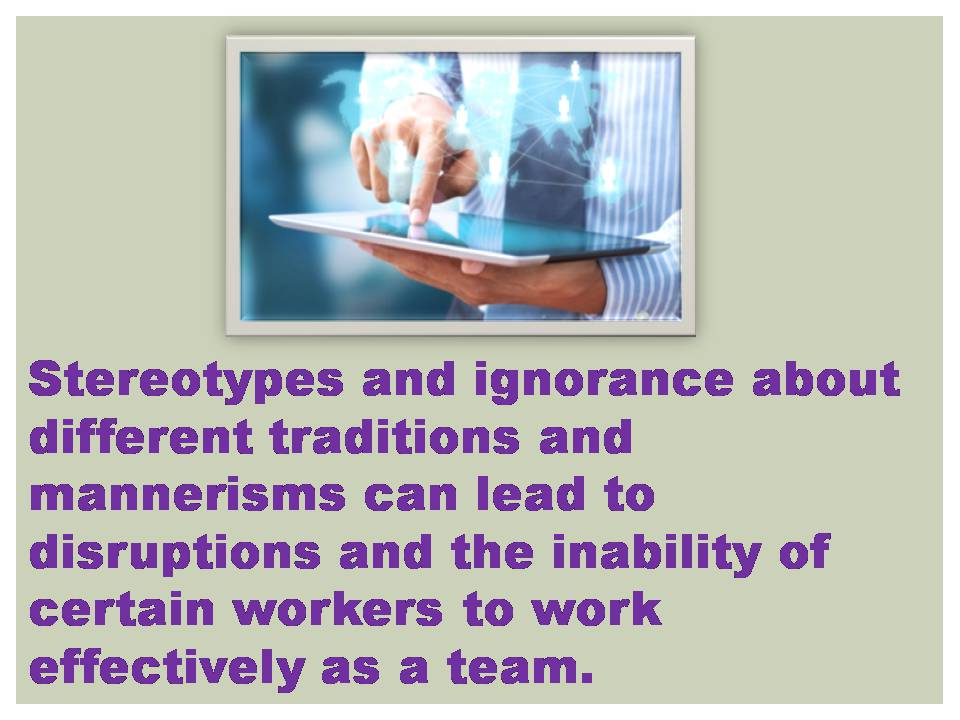
Stereotypes and ignorance about different traditions and mannerisms can lead to disruptions and the inability of certain workers to work effectively as a team.
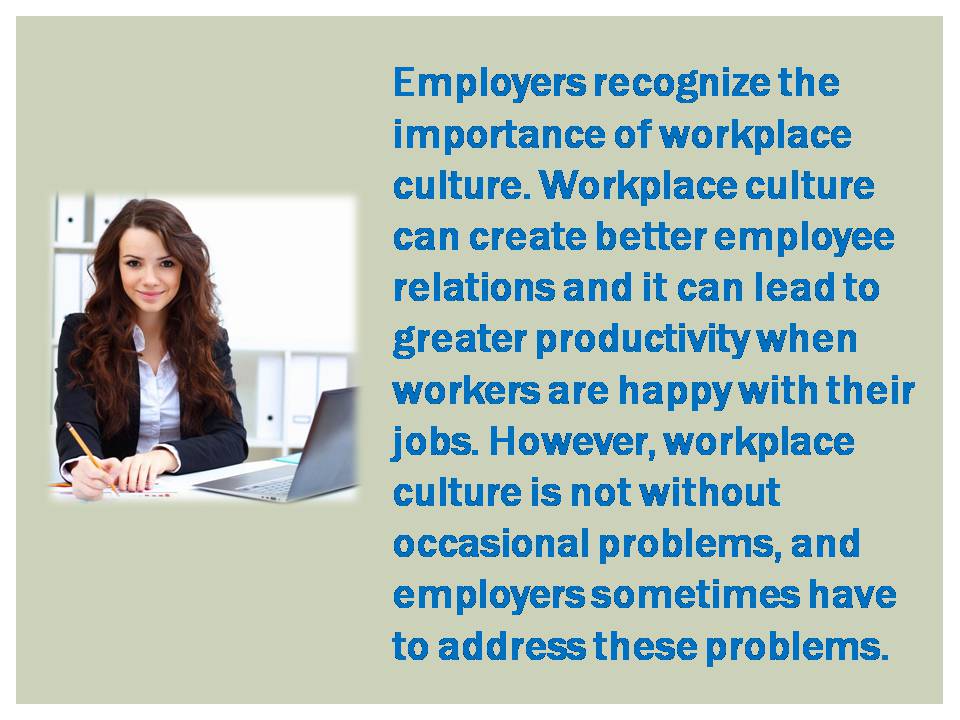
Employers recognize the importance of workplace culture. Workplace culture can create better employee relations and it can lead to greater productivity when workers are happy with their jobs. However, workplace culture is not without occasional problems, and employers sometimes have to address these problems.
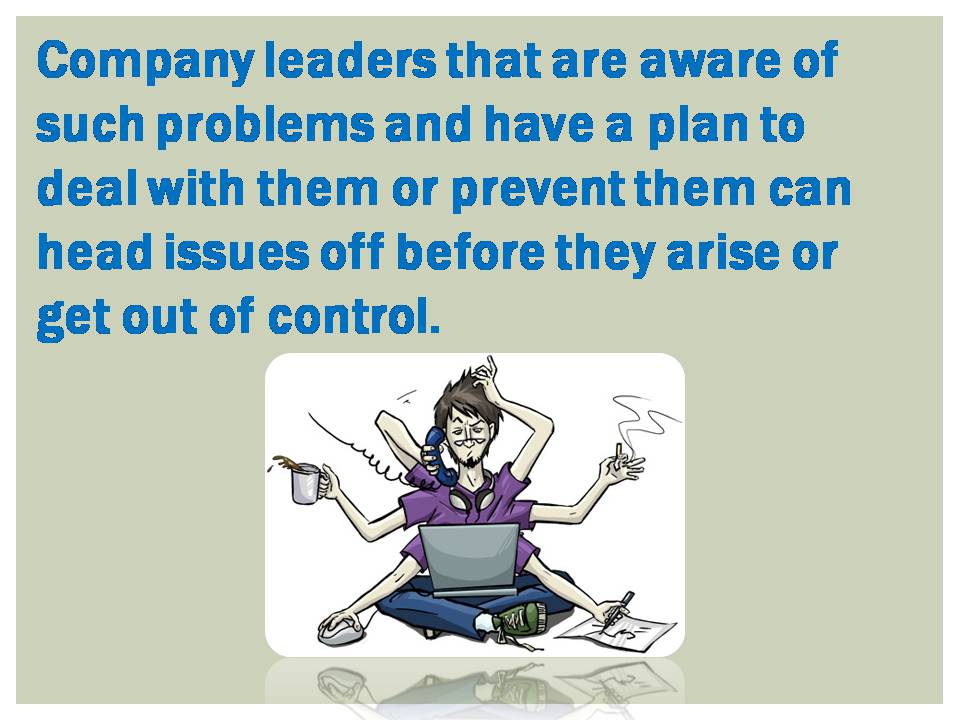
Company leaders that are aware of such problems and have a plan to deal with them or prevent them can head issues off before they arise or get out of control.
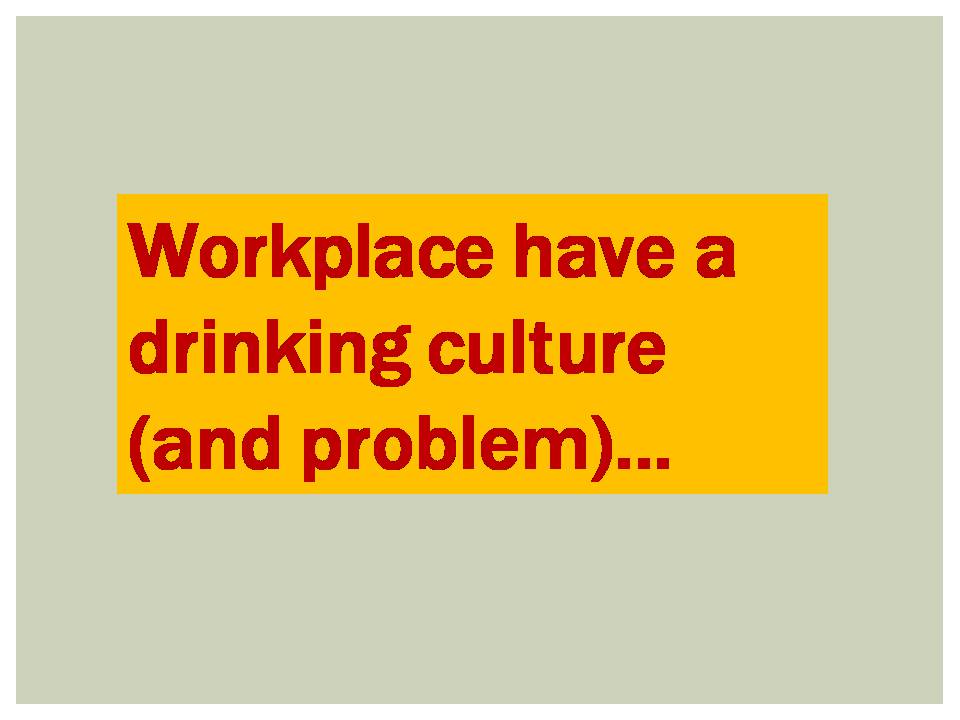
Workplace have a drinking culture (and problem)…
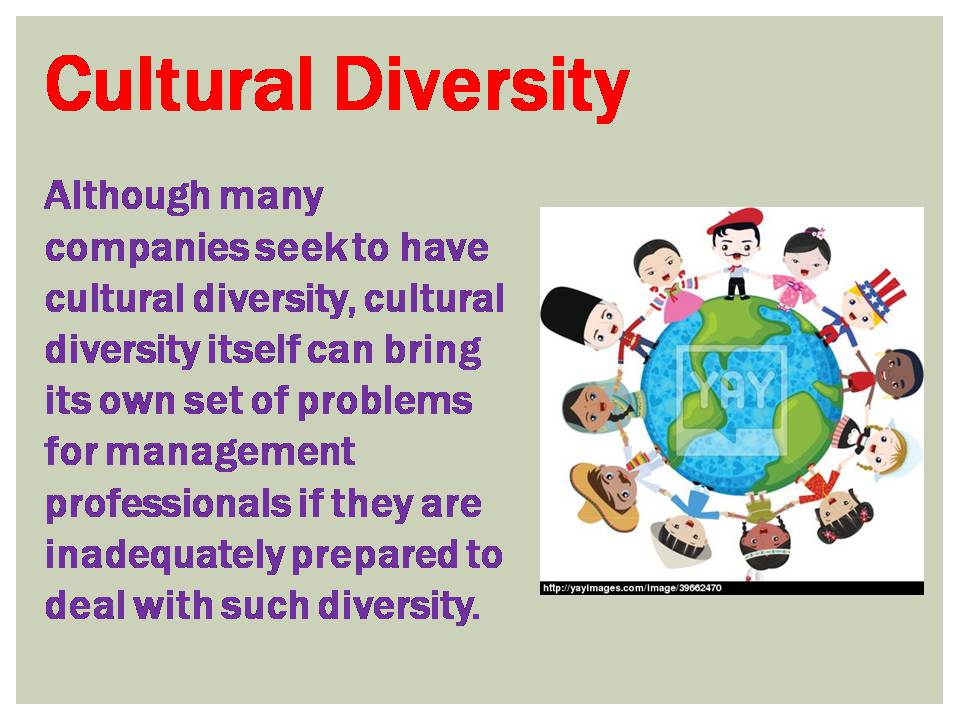
Cultural Diversity
Although many companies seek to have cultural diversity, cultural diversity itself can bring its own set of problems for management professionals if they are inadequately prepared to deal with such diversity.
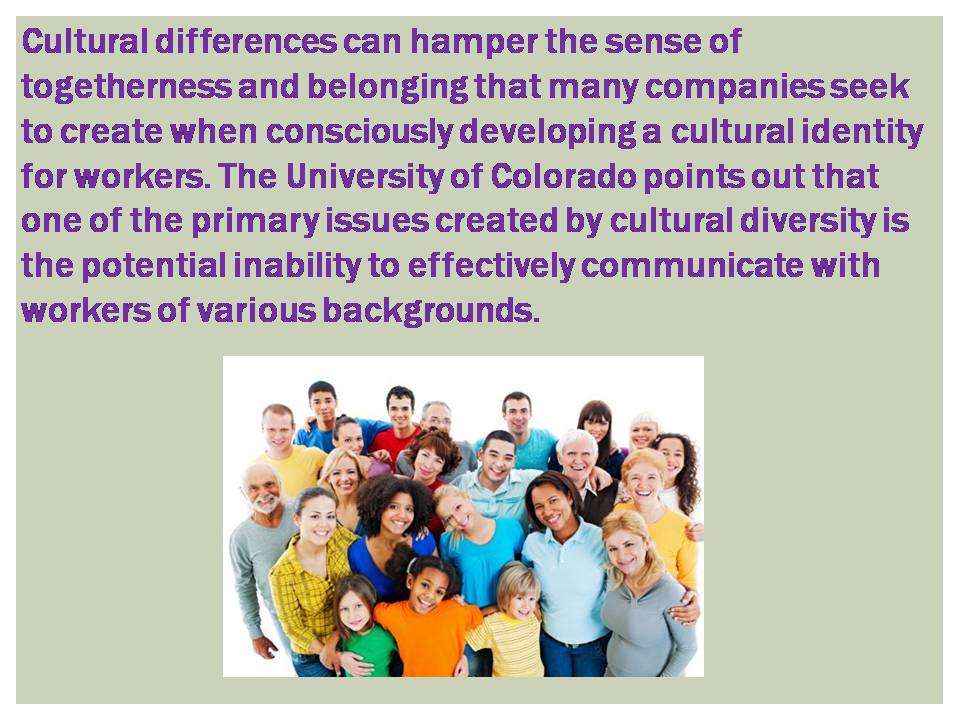
Cultural differences can hamper the sense of togetherness and belonging that many companies seek to create when consciously developing a cultural identity for workers. The University of Colorado points out that one of the primary issues created by cultural diversity is the potential inability to effectively communicate with workers of various backgrounds.
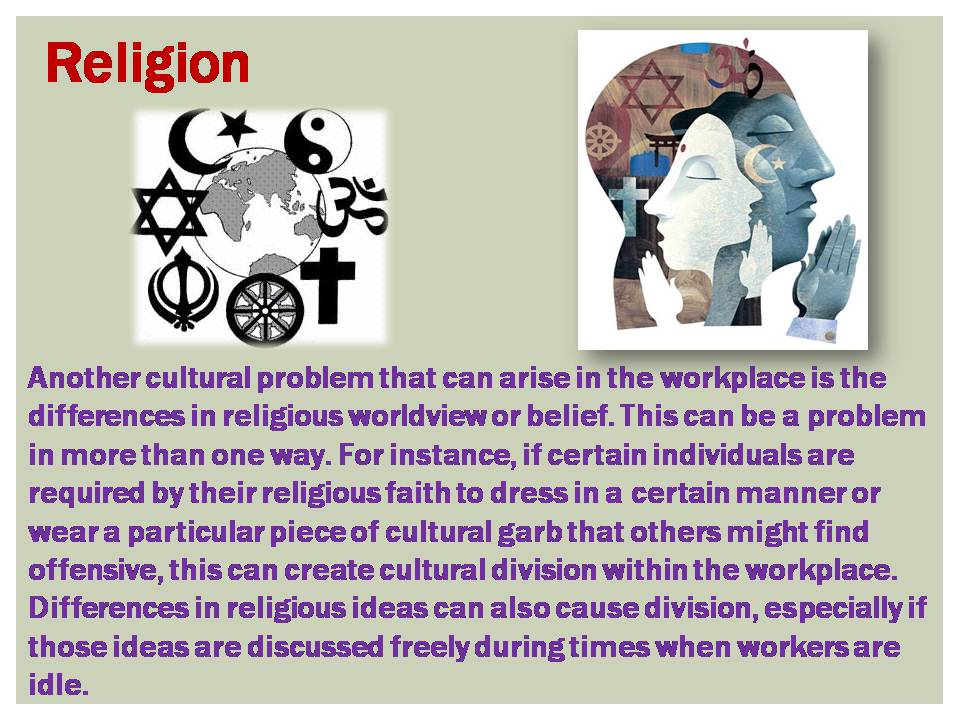
Religion
Another cultural problem that can arise in the workplace is the differences in religious worldview or belief. This can be a problem in more than one way. For instance, if certain individuals are required by their religious faith to dress in a certain manner or wear a particular piece of cultural garb that others might find offensive, this can create cultural division within the workplace. Differences in religious ideas can also cause division, especially if those ideas are discussed freely during times when workers are idle.
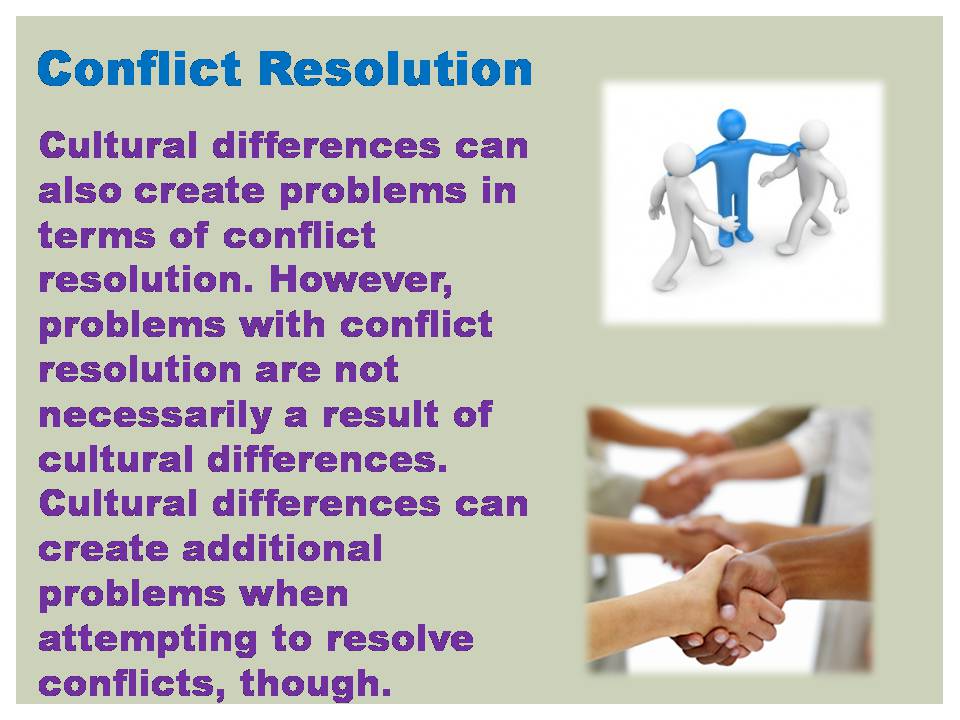
Conflict Resolution
Cultural differences can also create problems in terms of conflict resolution. However, problems with conflict resolution are not necessarily a result of cultural differences. Cultural differences can create additional problems when attempting to resolve conflicts, though.
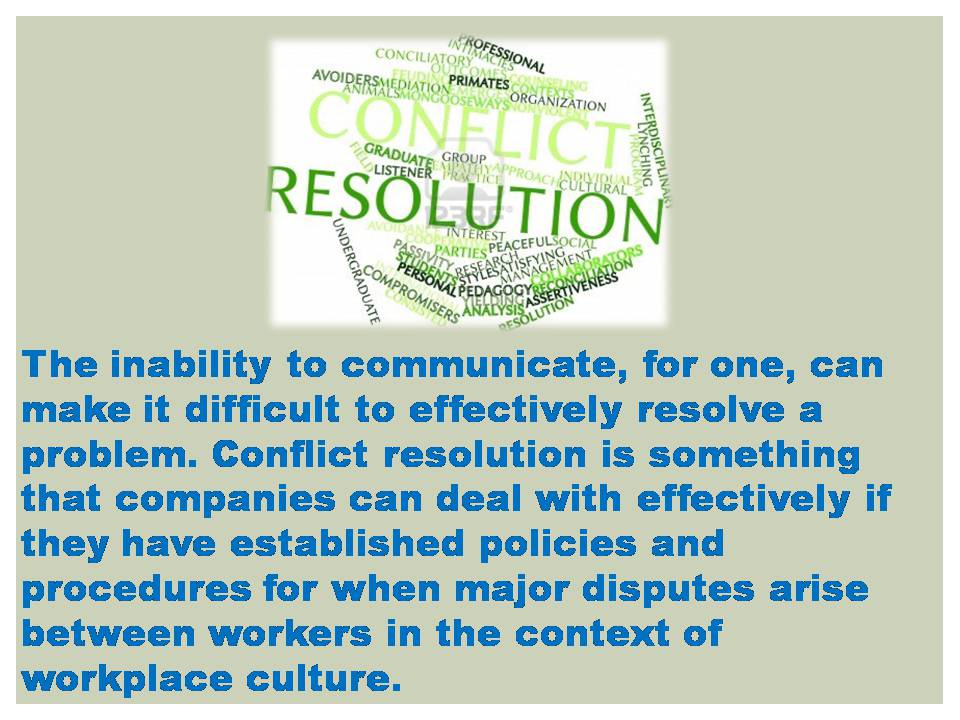
The inability to communicate, for one, can make it difficult to effectively resolve a problem. Conflict resolution is something that companies can deal with effectively if they have established policies and procedures for when major disputes arise between workers in the context of workplace culture.
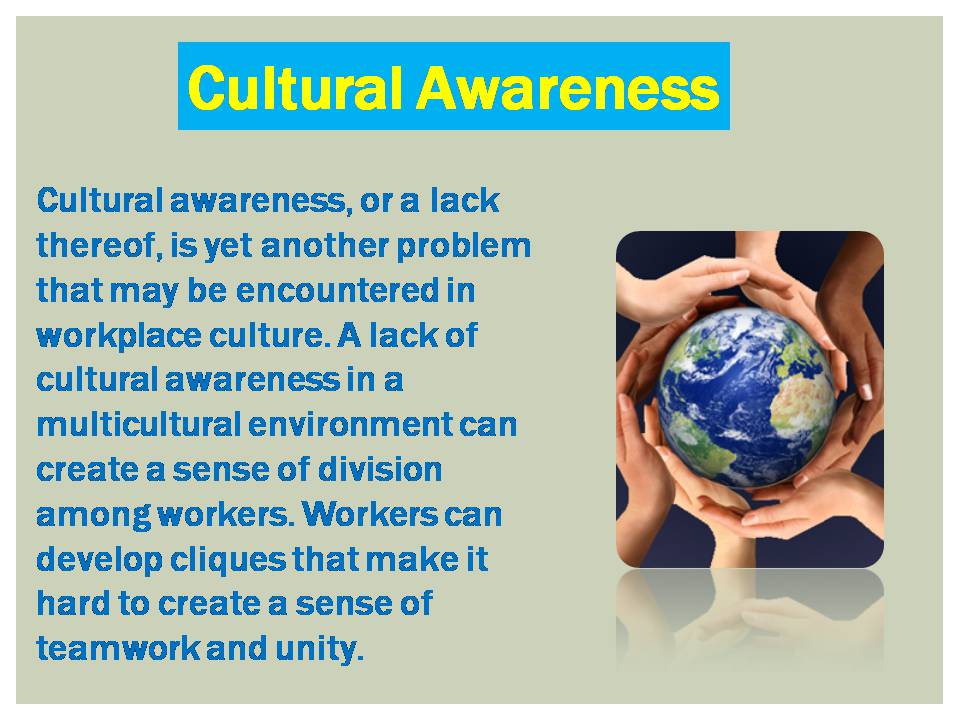
Cultural Awareness
Cultural awareness, or a lack thereof, is yet another problem that may be encountered in workplace culture. A lack of cultural awareness in a multicultural environment can create a sense of division among workers. Workers can develop cliques that make it hard to create a sense of teamwork and unity.
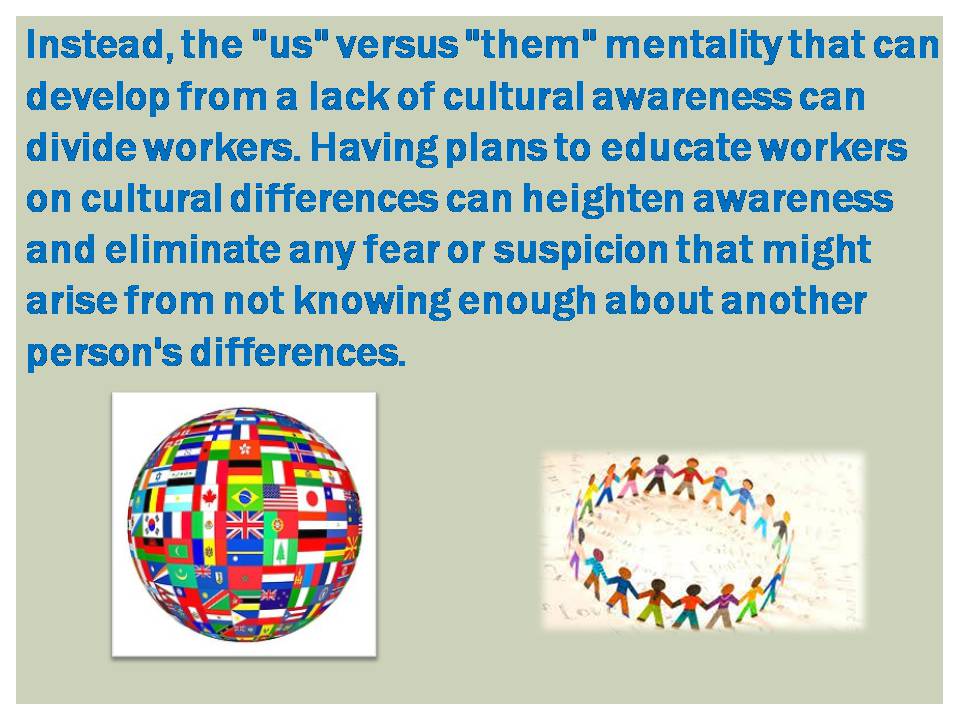
Instead, the "us" versus "them" mentality that can develop from a lack of cultural awareness can divide workers. Having plans to educate workers on cultural differences can heighten awareness and eliminate any fear or suspicion that might arise from not knowing enough about another person's differences.
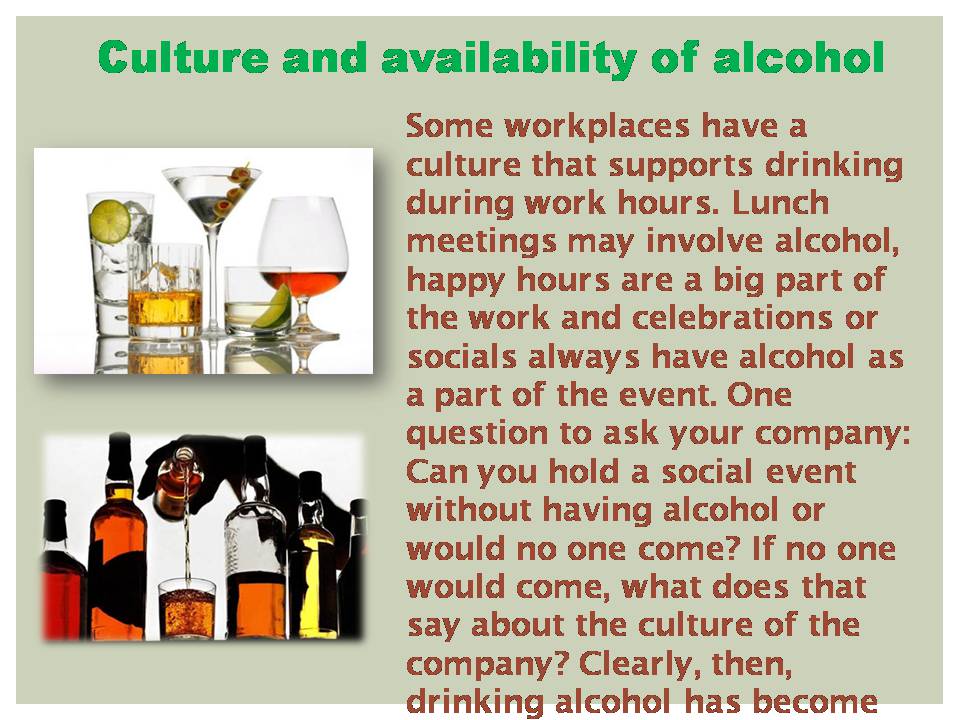
Culture and availability of alcohol
Some workplaces have a culture that supports drinking during work hours. Lunch meetings may involve alcohol, happy hours are a big part of the work and celebrations or socials always have alcohol as a part of the event. One question to ask your company: Can you hold a social event without having alcohol or would no one come? If no one would come, what does that say about the culture of the company? Clearly, then, drinking alcohol has become ingrained.
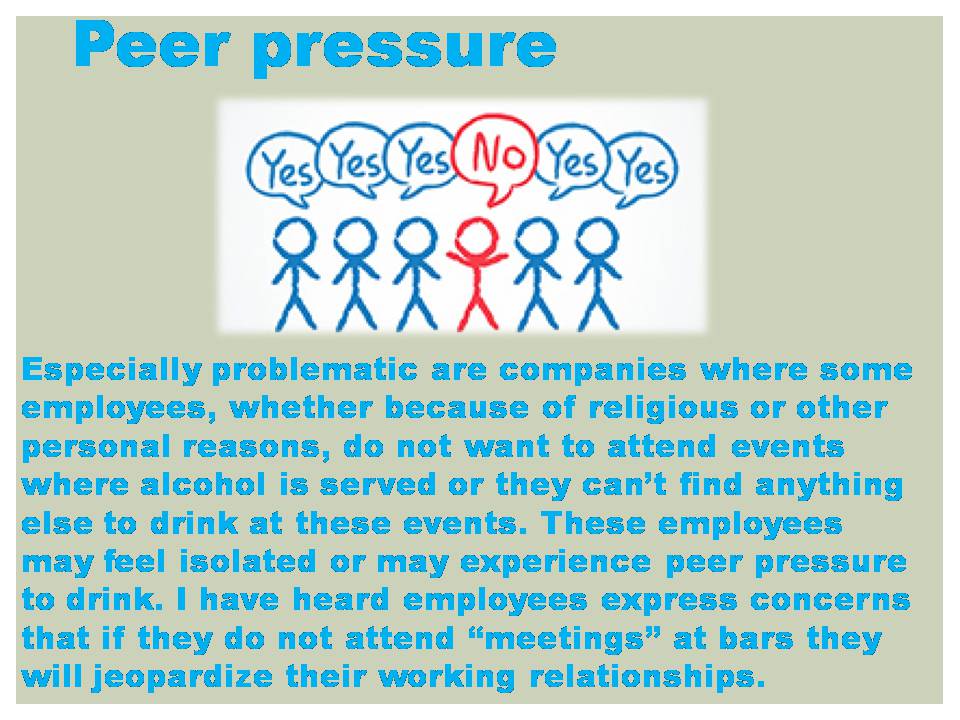
Peer pressure
Especially problematic are companies where some employees, whether because of religious or other personal reasons, do not want to attend events where alcohol is served or they can't find anything else to drink at these events. These employees may feel isolated or may experience peer pressure to drink. I have heard employees express concerns that if they do not attend “meetings” at bars they will jeopardize their working relationships.
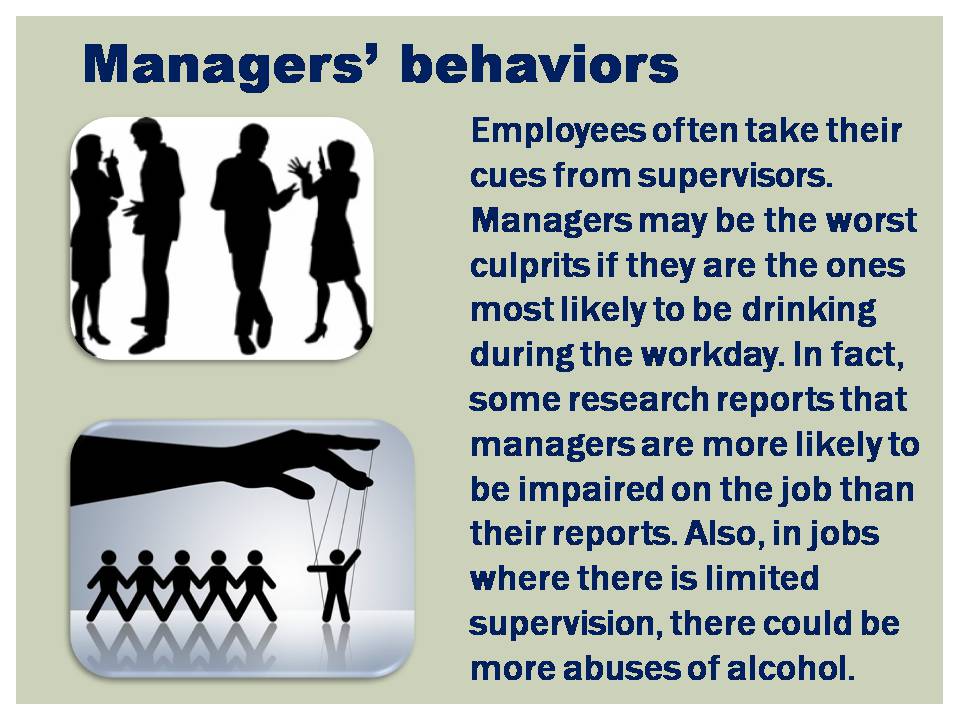
Managers' behaviors
Employees often take their cues from supervisors. Managers may be the worst culprits if they are the ones most likely to be drinking during the workday. In fact, some research reports that managers are more likely to be impaired on the job than their reports. Also, in jobs where there is limited supervision, there could be more abuses of alcohol.
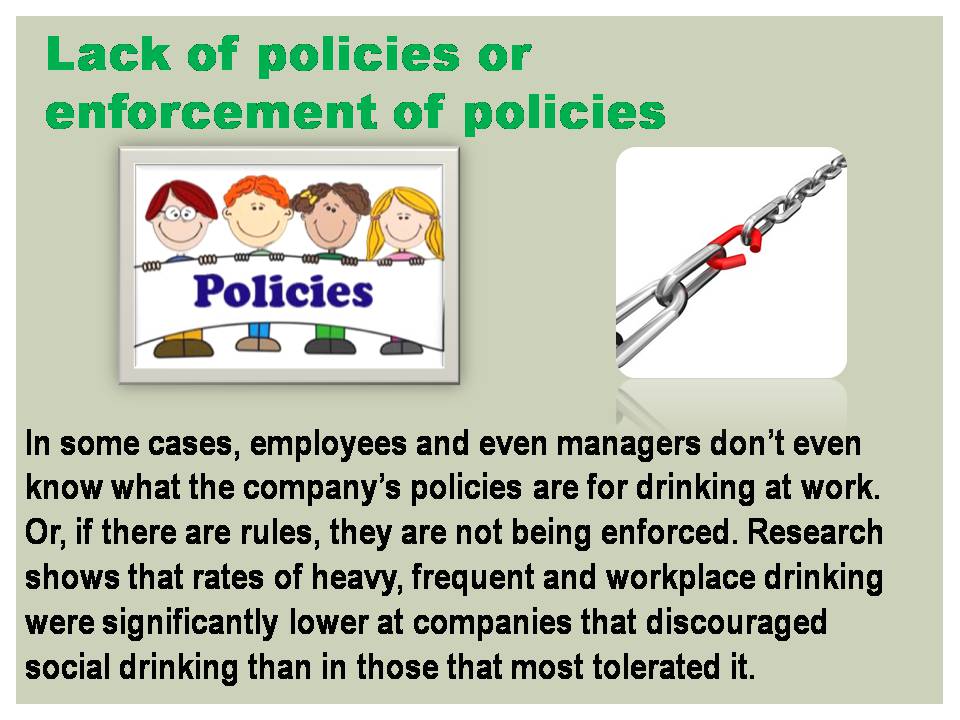
Lack of policies or enforcement of policies
In some cases, employees and even managers don't even know what the company's policies are for drinking at work. Or, if there are rules, they are not being enforced. Research shows that rates of heavy, frequent and workplace drinking were significantly lower at companies that discouraged social drinking than in those that most tolerated it.

Thank you for your attention !!!